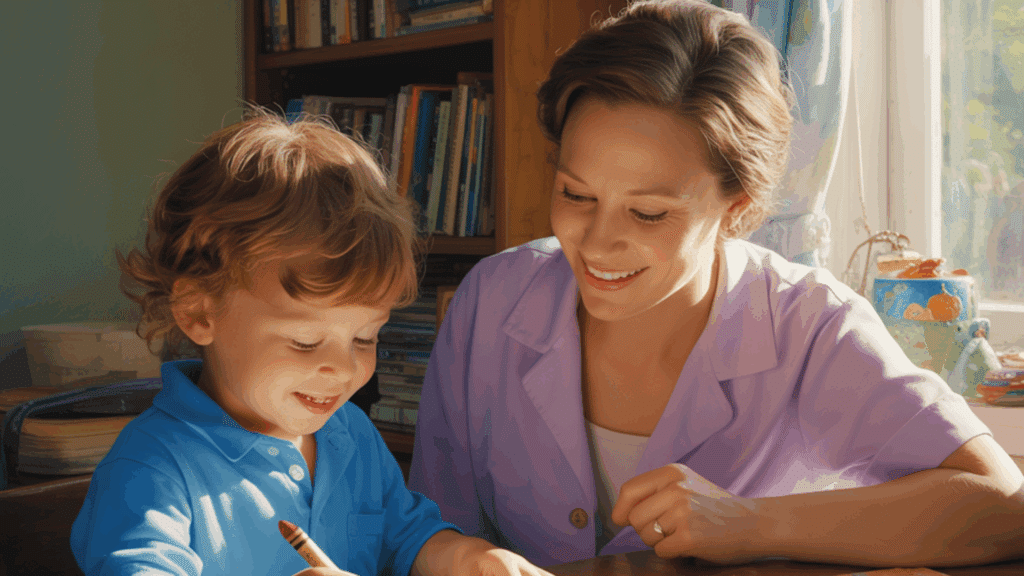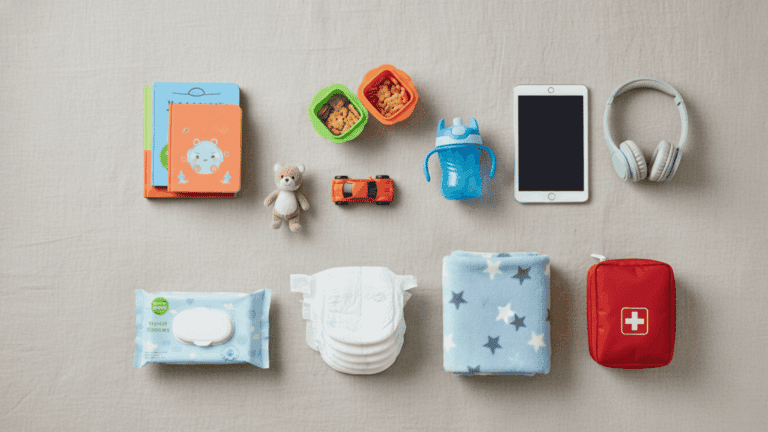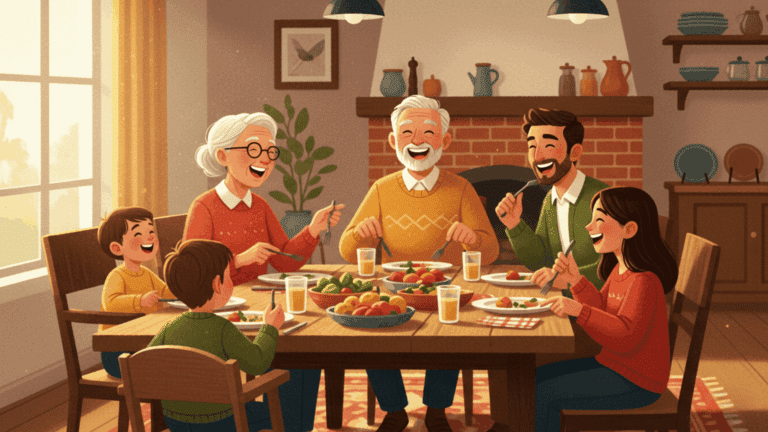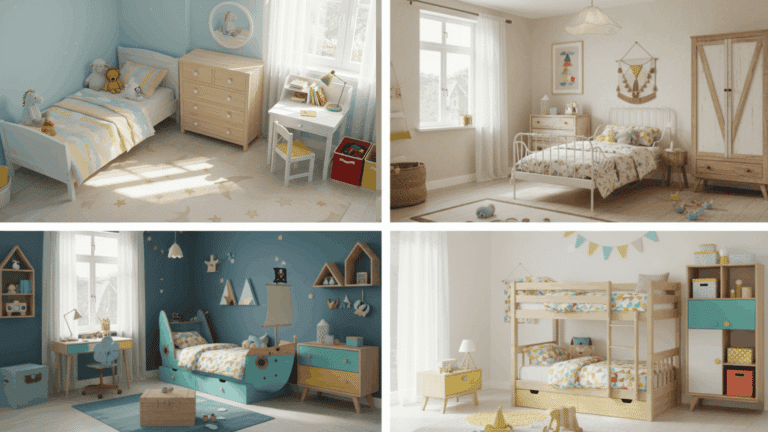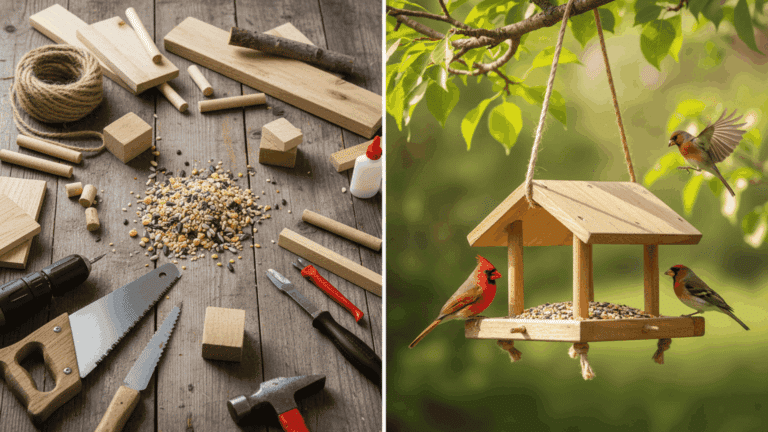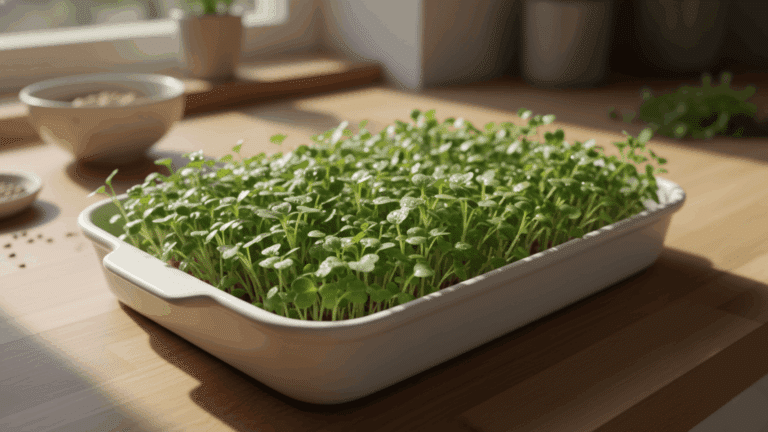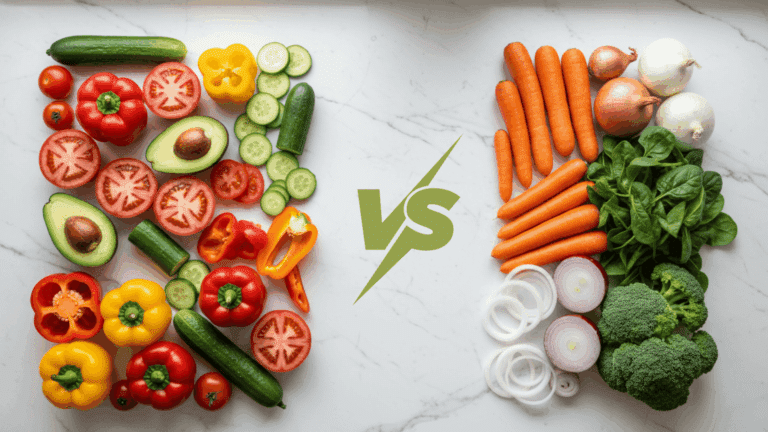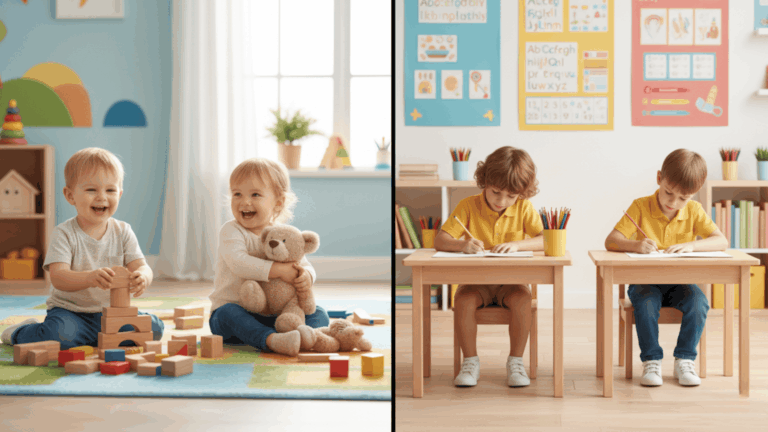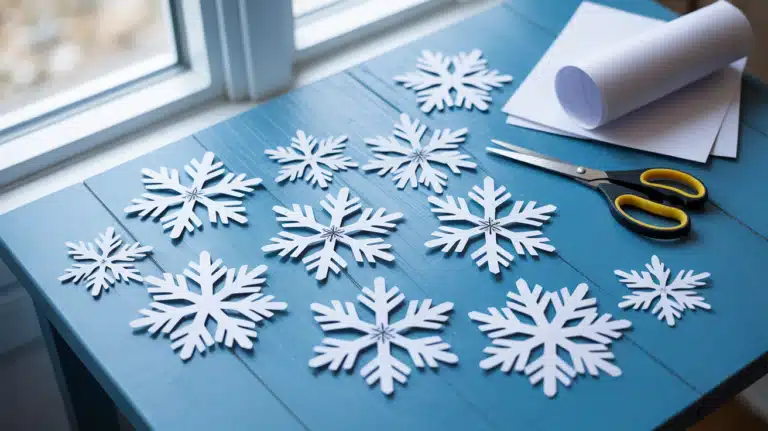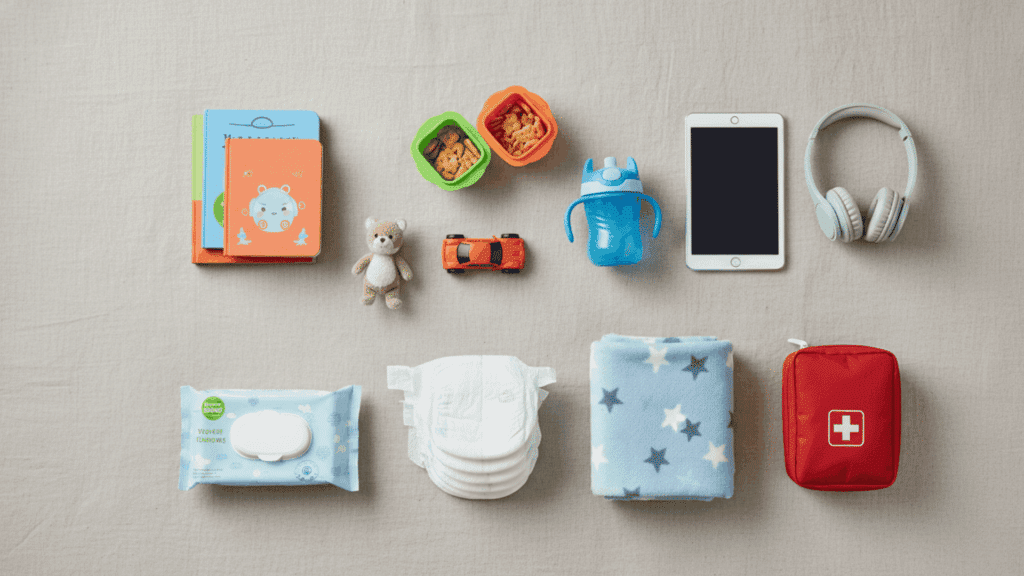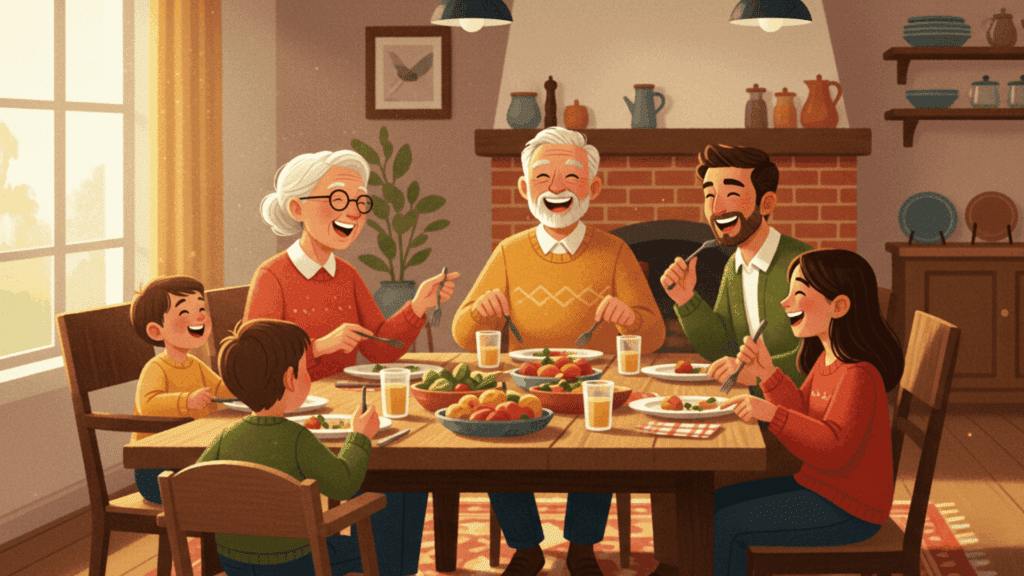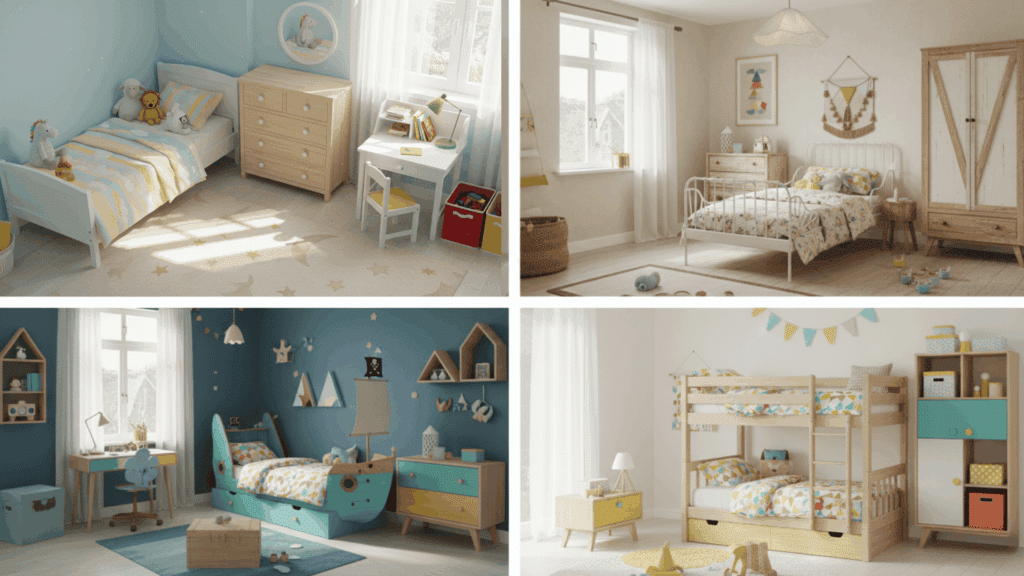Remember those color-by-number books that kept you busy for hours as a kid? Well, color by letter is the same concept.
It’s like a secret code that magically transforms into beautiful pictures, and kids love cracking the mystery. Plus, there’s something deeply satisfying about watching a jumbled mess of letters slowly reveal a hidden butterfly or dinosaur.
The best part is that while kids think they’re just coloring, they’re sneaking in some serious letter recognition practice. And unlike those fancy educational apps, this one doesn’t require charging.
So grab some crayons and let’s turn alphabet soup into art masterpieces!
The Importance of Color by Letter Exercises
These exercises are like the Swiss Army knife of early learning: they tackle multiple skills at once while kids think they’re just having fun with crayons.
The following are a few important reasons to practice of color-by-letter exercise.
Building Letter Recognition Skills
Kids need to see letters over and over again before they stick, and color-by-letter activities make this repetition feel like a game rather than a chore. When they’re hunting for all the A’s to color red, they’re training their brains to recognize that letter shape instantly.
Developing Fine Motor Control
Those tiny crayons and precise coloring movements are building the hand strength and coordination kids need for writing. It’s like going to the gym, but way more colorful and with less sweating.
Boosting Focus and Concentration
In a world full of flashing screens and instant gratification, these exercises teach kids to stick with a task until it is completed. They learn to follow directions, pay attention to details, and feel that satisfying “I did it!” moment when the picture emerges.
Creating Calm and Confidence
There’s something almost meditative about coloring, and when kids successfully decode the letter pattern to reveal a hidden image, their confidence soars. It’s like being a detective and an artist rolled into one.
Fun Color by Letter Worksheets
The beauty of these worksheets is that they come in endless varieties, from simple shapes perfect for preschoolers to complex scenes that challenge older kids. Below are some crowd-pleasers that keep kids coming back for more.
1. Ship at Sea
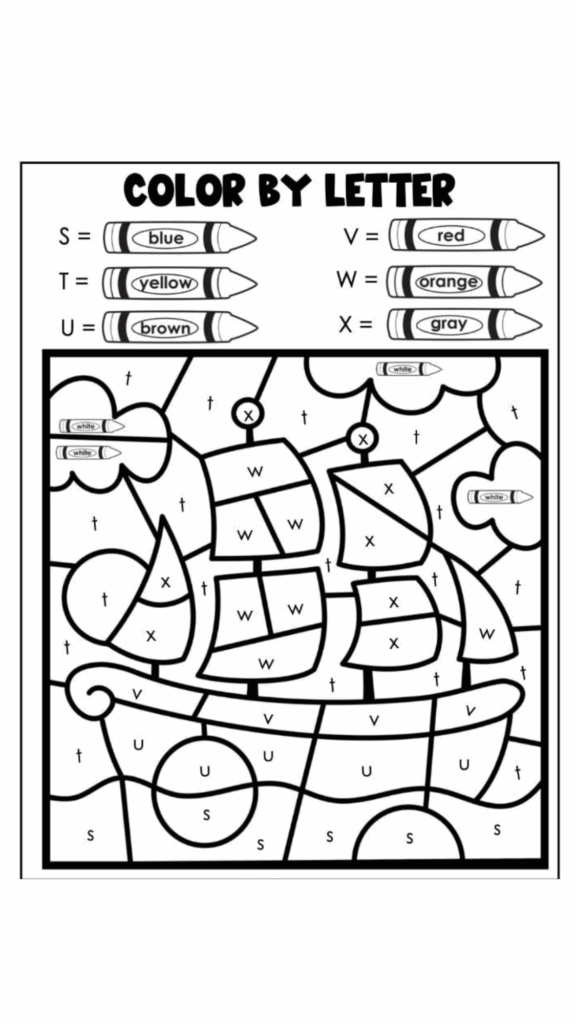
Picture Credit – @The Typical Mom
2. Hot and Tasty Pie
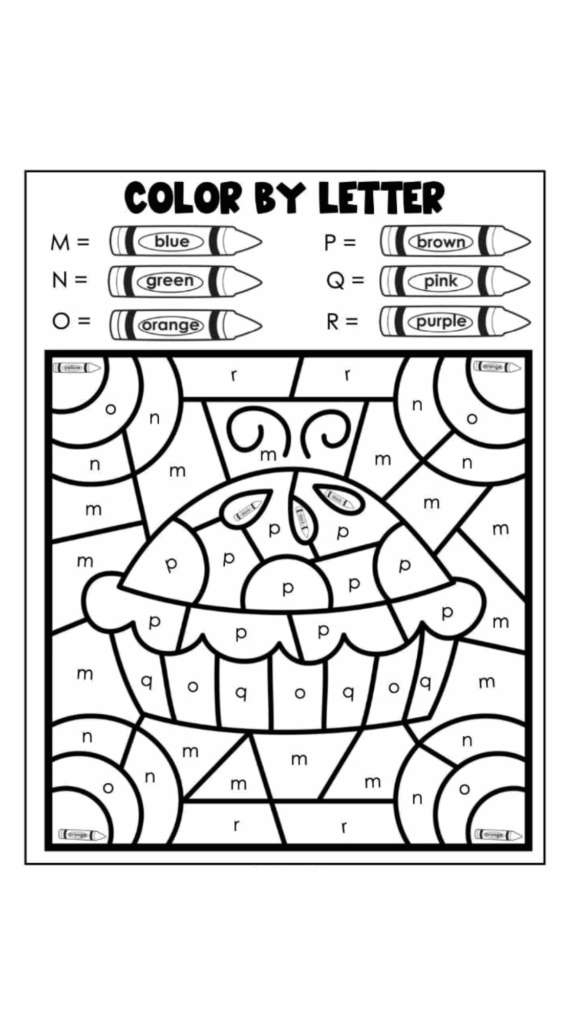
Picture Credit – @The Typical Mom
3. Scenic Chicken Farm
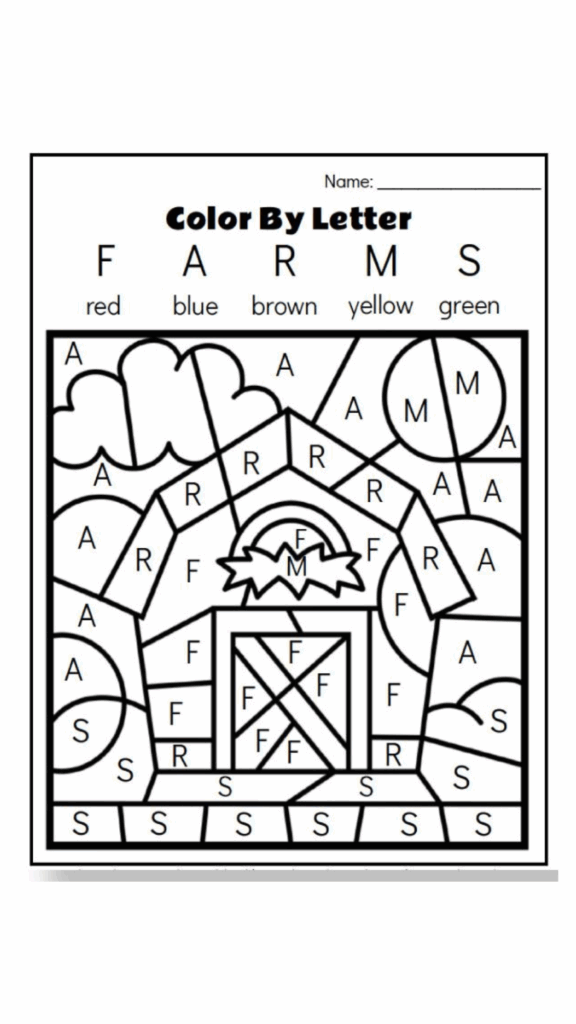
Picture Credit – @Simple Everyday Mom
4. Mr Caterpillar
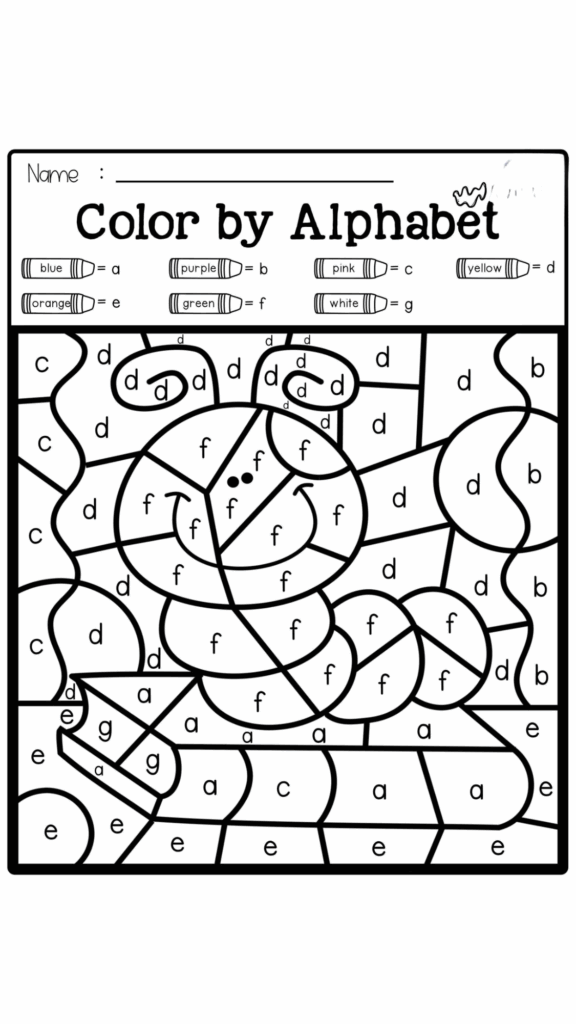
Picture Credit – @Miss Faleena
5. Mr Rat
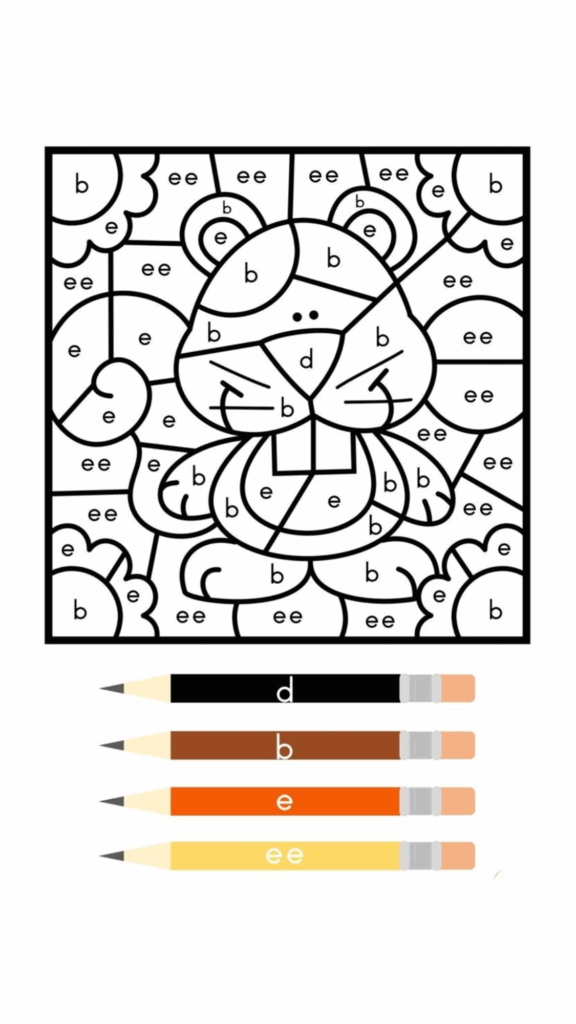
Picture Credit – @Color Letters
6. Mr Clown
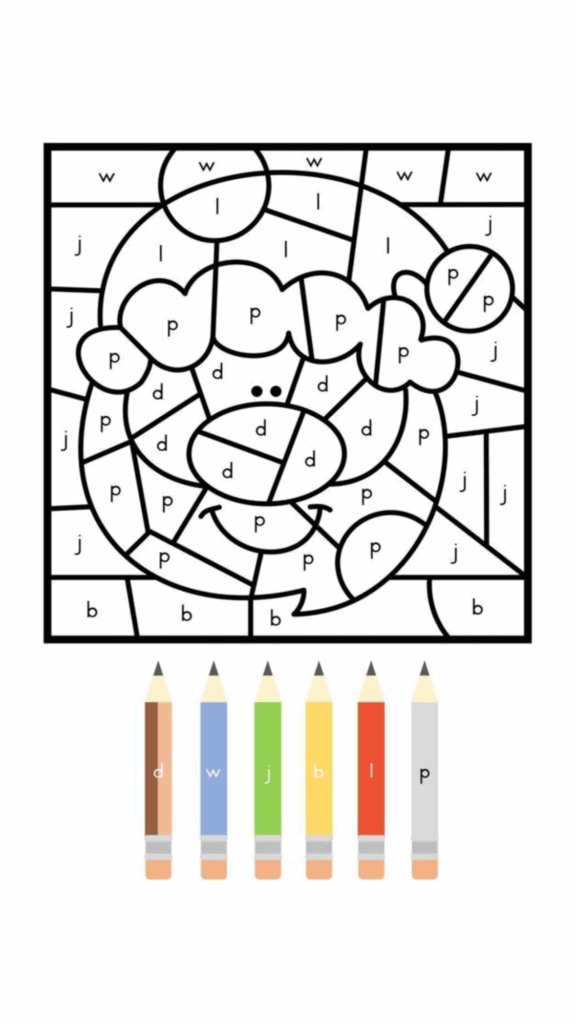
Picture Credit – @Color Letter
7. Beach Balls
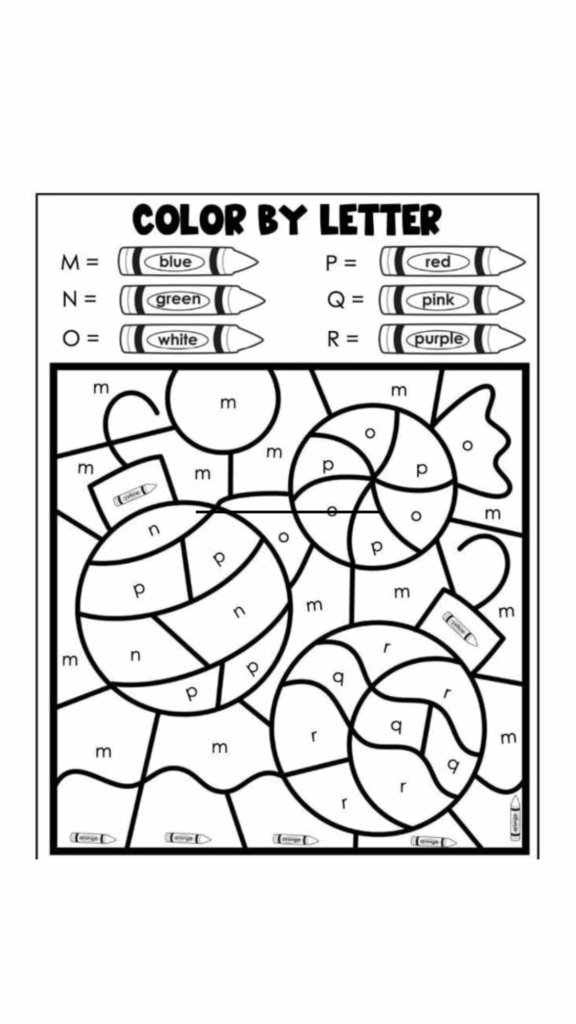
Picture Credit – @Michelle
8. Mama and Baby
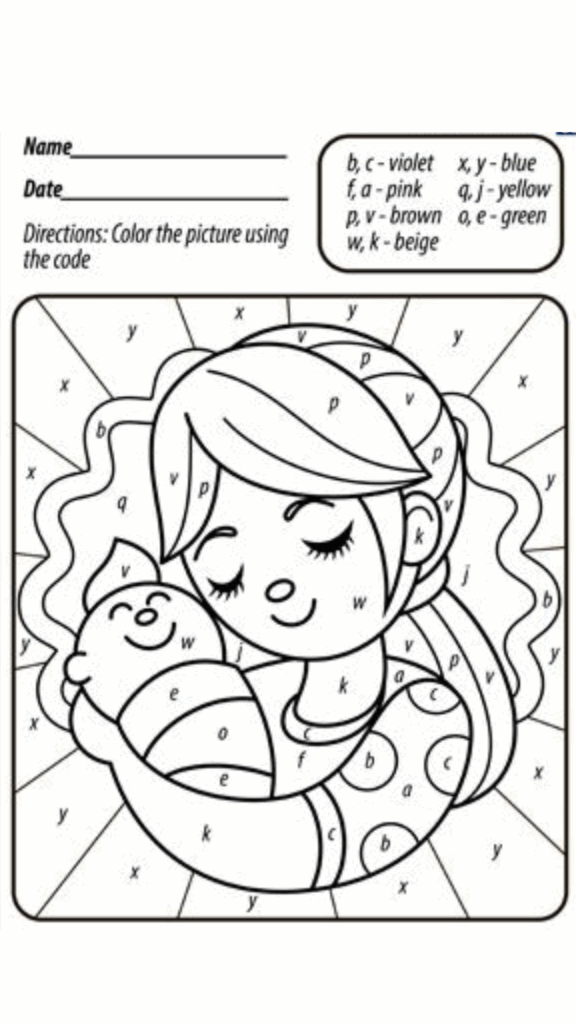
picture credit-@TeachersMag.com
9. Thanksgiving Turkey
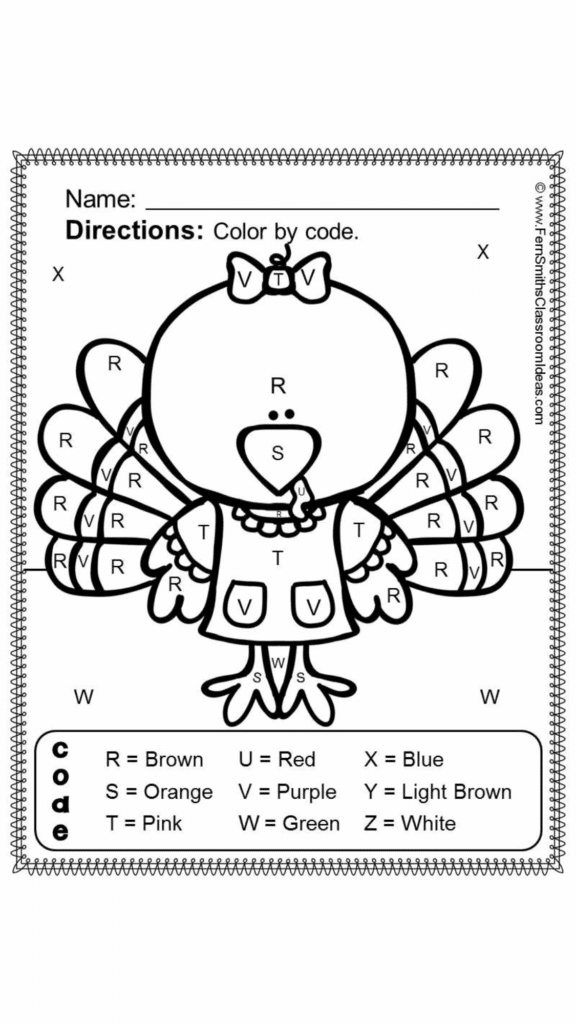
Picture Credit- @Fern Smith
10. Christmas Candycane
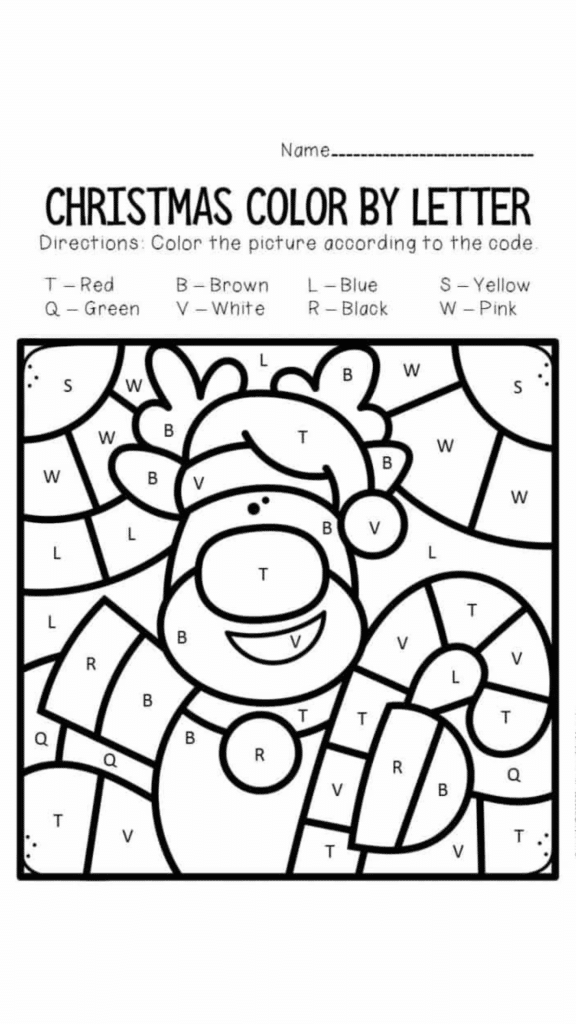
Picture Credit – @TheKeeperofMemories
11. Christmas Tree
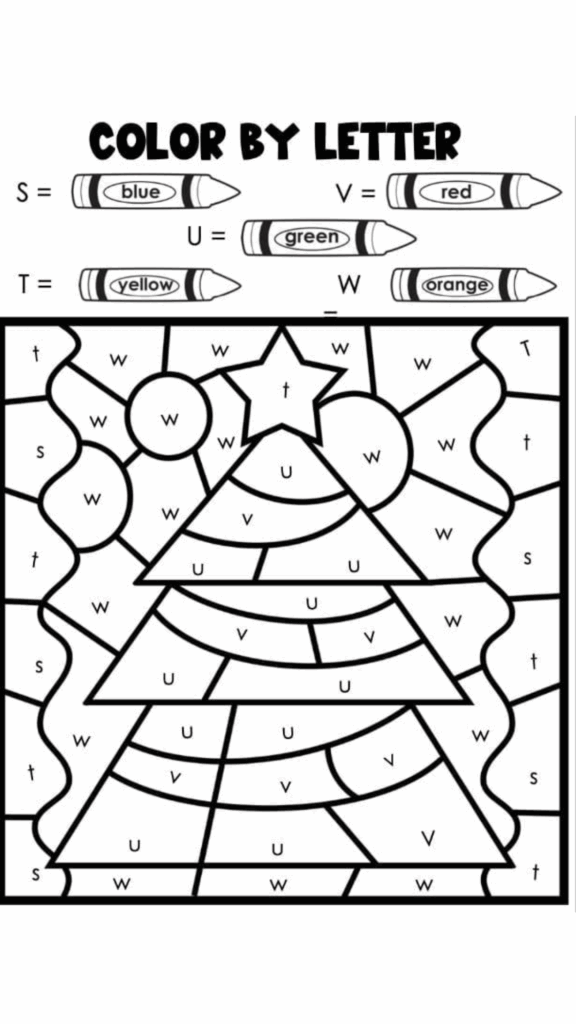
picture credit- @The Typical Mom
Find these Color by letter worksheets as a printable PDF
Things to Keep in Mind
Color-by-letter activities should feel like play, not work. The moment kids sense they’re being “educated,” the magic disappears. Keep things light, fun, and pressure-free.
- Start simple and build up: Nobody wants to overwhelm a 4-year-old with a worksheet that looks like alphabet soup exploded.
- Choose age-appropriate designs: Simple shapes for toddlers and detailed scenes for older kids.
- Have backup supplies: broken crayons lead to broken hearts, so stock up.
- Embrace the mess: coloring outside the lines is still coloring, and that’s perfectly fine.
- Make it social: kids love working on these together and comparing their creations.
- Celebrate completion: display finished masterpieces proudly, even if they’re more abstract than intended.
- Don’t stress about perfection: The goal is engagement and learning, not creating gallery-worthy art. if kids are having fun while practicing letter recognition, everyone wins.
Final takeaways
Color by letter exercises prove that learning doesn’t have to feel like medicine; sometimes, the best education comes disguised as pure fun. These activities turn alphabet practice into treasure hunts, where each correctly colored letter brings kids closer to revealing their hidden prize.
The real magic happens when kids don’t even realize they’re learning. They’re having a blast cracking codes, making pictures appear, and taking pride in their colorful creations.
And while they’re lost in the joy of coloring, their brains are busy building the foundation skills they’ll need for reading success.


